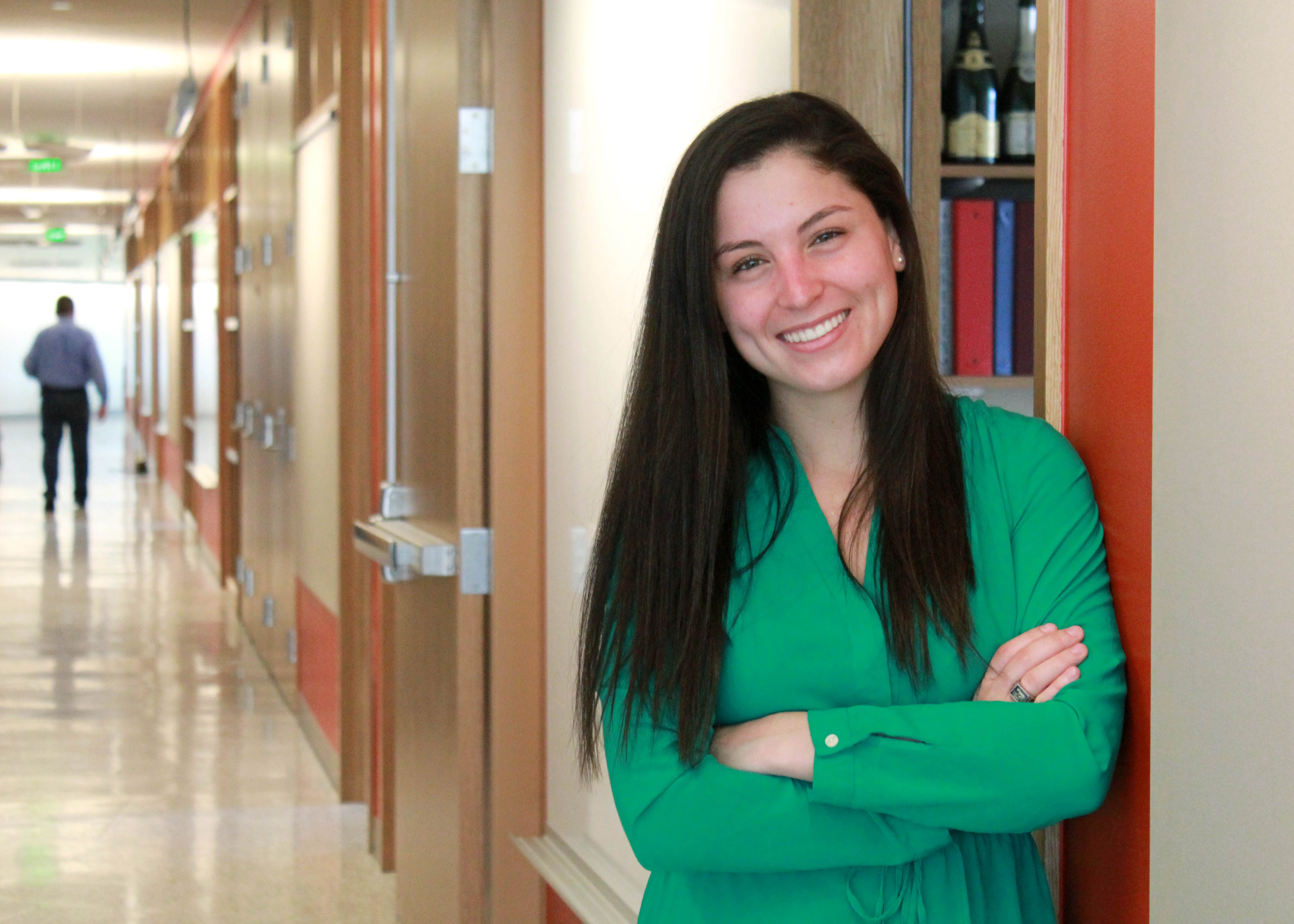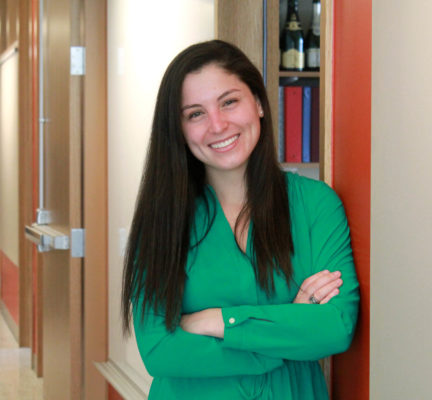

Paige E. Finkelstein ’14
"During my medical school interviews, I was consistently asked how chemical engineering is applicable to medicine. My answer was always the same: As a chemical engineer, I have a unique skill set that allows me to apply concepts to the human body that we studied in thermodynamics, fluid mechanics, and heat/mass transfer."
How did you decide on Course X as a major?
I decided to major in chemical engineering because I wanted to pursue an engineering degree that would be flexible enough to apply to fields in both chemistry and biology. I chose course 10 over similar majors such as 20 (biological engineering), or 3 (material sciences and engineering) because of course 10’s prominent reputation in academia/ industry as well as the flexibility that the department offered. It offers several engineering degrees, including 10, 10Eng, 10B, and 10C, which means students can find a chemical engineering degree tailored to their specific interests and goals.
I ended up majoring in 10B, chemical-biological engineering, which further allowed me to double major in 7A (biology), minor in 5 (chemistry) and complete my premed requirements. Had I pursued another major, I don’t think I would have had the opportunity to have easily pursued such a breadth of knowledge in multiple departments.
What is your academic experience in Course X?
The great thing about the chemical engineering department – and MIT in general – is that there are unlimited opportunities to further your academic interests. The undergraduate research opportunity program (UROP) stands out in my experience at MIT because of the high level research you get to engage in as an undergraduate. As a premed student, I found this very important because many medical schools expect you to have participated in research before you apply. Through UROPing at MIT I was not only immediately exposed to a plethora projects developing cutting edge bio/nano technology, but I also had the opportunity to work directly with world famous professors.
What are your plans post-graduation?
This summer I will begin working toward both my MD and MPH degrees at the University of Miami. This is a unique program that allows select students to attain both degrees in four years instead of five or six. I think I would ultimately like to pursue a residency in emergency medicine or trauma surgery, but I am also passionate about novel drug development, so I would also like to get involved with consulting for pharmaceutical companies. Contrary to popular belief, course 10 produces some of the best-prepared premeds because of their engineering background. During all of my medical school interviews, I was consistently asked how chemical engineering is applicable to medicine. My answer was always the same: As a chemical engineer, I have a unique skill set that allows me to apply concepts to the human body that we studied in thermodynamics, fluid mechanics, and heat/mass transfer. The human body is analogous to a bioreactor so, for example, understanding how oxygen transfer works for cells in a reactor can be directly applied to how oxygen is transferred from lungs into the blood stream!
How has your MIT ChemE experience helped you follow your goals/passions?
Becoming a chemical engineer has opened many doors for me. While I came to college with the intent to ultimately go to medical school, I knew that if I changed my mind, I could have easily pursued a career in several other trades with my chemical engineering degree. Just to give an idea, many of my peers are entering the pharmaceutical industry or oil/energy industry straight from undergraduate, and many of them are pursuing PhDs or master degrees in chemical engineering. There are also several students entering consulting, finance, or working for start-ups. A great feature of course 10 is that even if you realize your goals a little bit later in your college career, your career choices won’t be limited.
Is there anything else you'd like to share?
Because of the way course 10 is structured, it facilitates a strong sense of community among your peers. At about 70 students per year, you get to know everyone in your class very well. Some of the best friends I have made at MIT are the friends I met on the first day of 10.10 (the introductory chemical engineering class), and some of my favorite memories at MIT were made in Building 66 (the chemical engineering building). As I am about to graduate, I really could not imagine my MIT experience without course 10.

